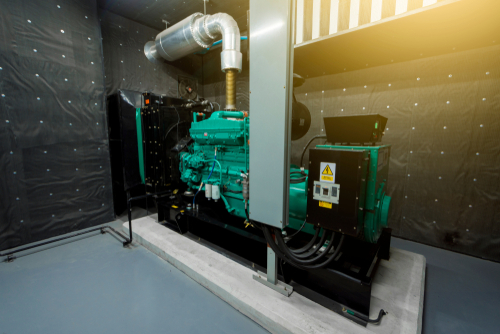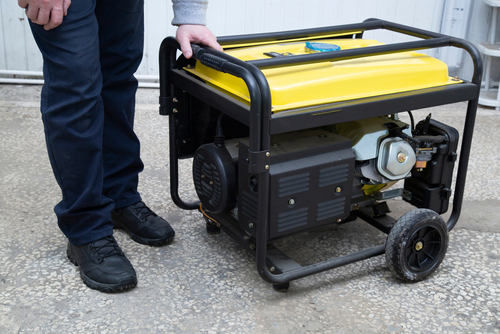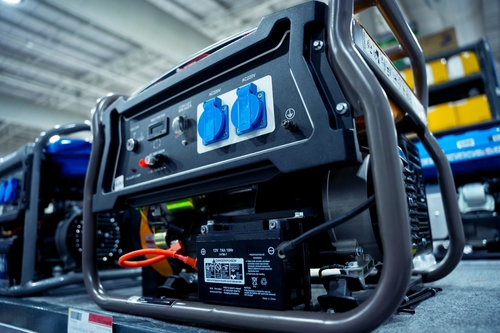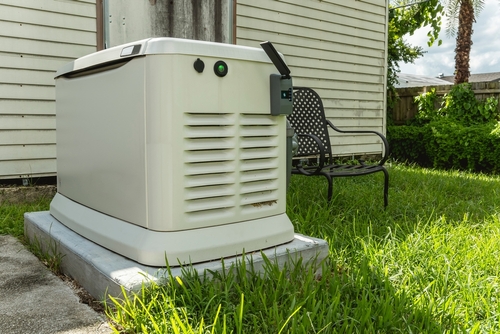In an era where extreme weather events have become more frequent and unpredictable, the importance of emergency generators has never been more pronounced. These robust machines serve as a lifeline during power outages, ensuring that homes, hospitals, businesses, and essential services can continue to operate uninterrupted. The reliance on electricity for everyday life is undeniable, and in times of crisis, emergency generators stand as guardians against the chaos that can ensue from prolonged power losses.
Understanding Emergency Generators
Emergency generators come in various sizes and capacities, tailored to meet the specific needs of different users. From portable units that can power a few essential household appliances to large, industrial-grade generators capable of energizing entire hospitals or emergency response centers, the range of options available reflects the diverse requirements of a society dependent on continuous power supply. The choice of fuel is also a critical consideration, with options including diesel, gasoline, natural gas, and propane, each offering its own set of advantages and limitations.

Emergency Generators: Ensuring Power and Safety
The principle behind emergency generators is simple yet profoundly impactful: to provide an independent source of electrical power during interruptions to the main supply. This is achieved through an internal combustion engine that generates electricity, effectively insulating critical operations from the grid’s vulnerabilities. For residential users, this means the ability to keep lights on, refrigerators running, and heating or cooling systems operational, preserving a semblance of normalcy amid external turmoil. For essential services like hospitals, emergency generators are nothing short of vital, powering life-saving equipment and critical systems that cannot afford even a momentary lapse in electricity.
Installation Essentials for Emergency Generators
Installing an emergency generator requires careful planning and consideration. It’s not merely about choosing the right size and fuel type; placement, ventilation, and safety measures are equally important to ensure efficient operation and minimize risks. Professional installation is often recommended to comply with local codes and standards, ensuring that the generator is ready to perform when needed most.
Beyond Convenience to Critical Support
The benefits of having an emergency generator extend beyond mere convenience. In critical healthcare settings, they support operations that save lives. In businesses, they prevent data loss and financial damage caused by unscheduled downtimes. At home, they protect against food spoilage and maintain comfortable living conditions, mitigating the stress and discomfort of power outages. Moreover, in areas prone to natural disasters, emergency generators provide a sense of security and preparedness, empowering residents to face unpredictable challenges with greater resilience.

The Responsibility of Maintaining Emergency Generators
Despite their invaluable role, emergency generators also come with challenges and responsibilities. Maintenance is crucial to ensure reliability in times of need, requiring regular checks and servicing to keep the generator in optimal condition. Environmental considerations, particularly with fuel storage and emissions, also necessitate mindful management and adherence to regulations, emphasizing the need for a balanced approach to emergency preparedness.
The Future of Emergency Generators: Innovation and Sustainability
As technology advances, the future of emergency generators looks promising, with innovations aimed at improving efficiency, reducing environmental impact, and integrating with renewable energy sources. The development of hybrid systems, which combine traditional generators with solar panels or battery storage, offers a glimpse into a future where emergency power solutions are not only more reliable but also more sustainable.
Emergency Generators as Pillars of Resilience in an Unpredictable World
In conclusion, emergency generators play a pivotal role in modern society, providing a crucial backup in times of power outages and natural disasters. Their importance transcends convenience, touching on the very essence of safety, security, and continuity in an increasingly unpredictable world. As we navigate the challenges of the 21st century, the strategic deployment of emergency generators, coupled with advancements in technology, will be key to ensuring that homes, businesses, and essential services can withstand the trials posed by nature and other unforeseen disruptions.

Integration with Smart Technology
Integrating emergency generators with smart technology enables remote monitoring and control, elevating their usability and efficiency. Users gain real-time insights into generator status, receive alerts, conduct diagnostics, and remotely initiate or halt operations. This enhanced functionality offers unparalleled convenience and peace of mind, allowing users to manage their generators effortlessly from anywhere. By embracing smart technology, emergency generators become more responsive and adaptable, ensuring reliable backup power precisely when needed, thus fortifying resilience in the face of unforeseen challenges.
Backup for Renewable Energy Systems
Emergency generators serve a critical role as backup power sources for renewable energy systems such as solar panels or wind turbines. In instances where renewable energy generation falls short, these generators seamlessly complement the power supply, guaranteeing uninterrupted electricity flow. This integration not only enhances sustainability by ensuring consistent energy availability but also strengthens the reliability of renewable energy systems, particularly in fluctuating conditions. By providing a reliable backup, emergency generators contribute significantly to the resilience and effectiveness of renewable energy initiatives, fostering a more sustainable and robust energy ecosystem for the future.
Community Resilience
Emergency generators play a crucial role in community resilience by maintaining the functionality of critical infrastructure during disasters. They ensure that essential facilities like emergency shelters, water treatment plants, and communication networks remain operational despite power outages. This collective resilience empowers communities to swiftly recover from adversity and bounce back stronger. By safeguarding vital services, emergency generators become pillars of support during crises, reinforcing the fabric of society and enhancing overall community well-being.

Training and Education
Effective training and education on generator operation and maintenance are vital to optimize their performance and lifespan. Offering comprehensive training programs for users, technicians, and emergency responders ensures safe and efficient generator operation, minimizing the likelihood of accidents and downtime. By prioritizing education, organizations can enhance generator reliability, mitigate risks, and maintain operational continuity, ultimately safeguarding critical services and infrastructure during emergencies.
Government Incentives
Governments frequently provide incentives or subsidies to promote emergency generator installation, especially in regions susceptible to power outages or natural calamities. These incentives serve to alleviate the upfront expenses associated with purchasing and installing generators, thereby increasing accessibility for a broader spectrum of users. By incentivizing generator adoption, governments bolster community resilience, ensuring critical services remain operational during emergencies. This proactive approach enhances public safety and minimizes disruptions, ultimately fostering greater preparedness and resilience in disaster-prone areas.
Collaboration with Utility Companies
Utility companies contribute to emergency generator deployment by collaborating with customers to identify vital infrastructure and devise contingency plans for power outages. This collaborative effort facilitates a coordinated emergency response, minimizing disruptions and optimizing resource allocation. By working together, utility companies and customers enhance community resilience, ensuring essential services remain operational during crises. This proactive approach fosters a resilient energy infrastructure, capable of withstanding unforeseen challenges and maintaining continuity in critical situations.

